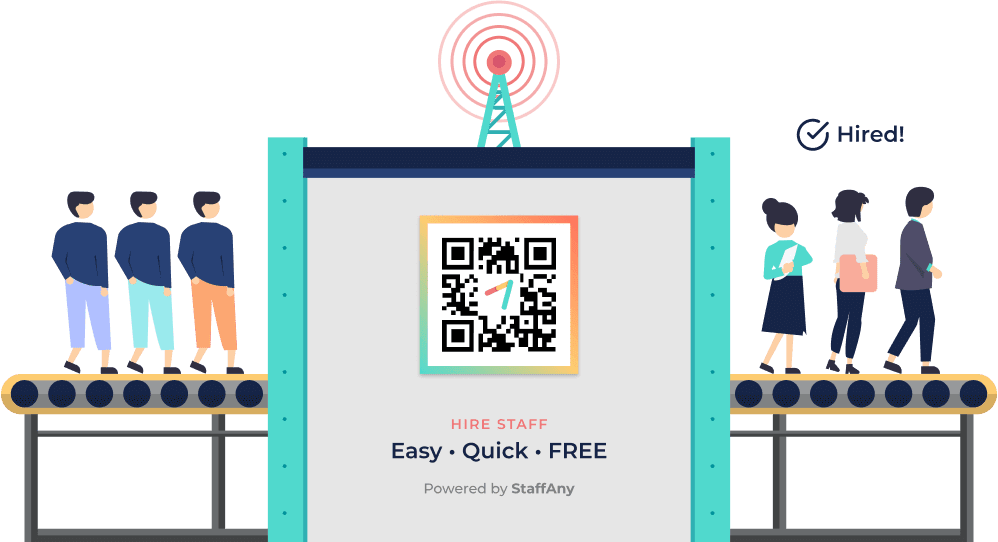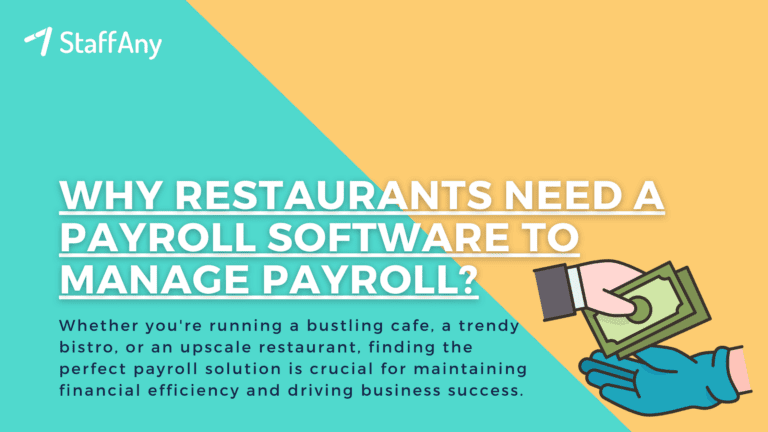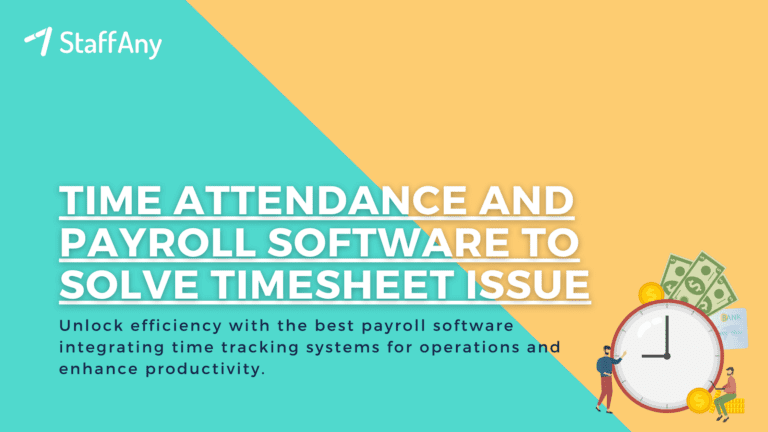If you run a food business, then you know how competitive the industry can be. With so many restaurants, cafes, and hawkers vying for attention, it can be tough to stand out. That’s where marketing comes in. By implementing effective marketing strategies, you can increase awareness of your brand, attract new customers, and grow your business.
In this article, we’ll take a look at 20 marketing strategies for food businesses that are proven to be effective and why it matters. Let’s find out below!
What Is a Restaurant Marketing Strategy?

A restaurant marketing strategy is a comprehensive plan designed to promote a restaurant, attract customers, increase brand awareness, and drive revenue. It outlines the various tactics and approaches the restaurant will use to reach its target audience and achieve its business goals.
A well-developed marketing strategy takes into account the restaurant’s unique offerings, target market, competitive landscape, and available resources
Read more: Developing an Effective Restaurant Management Plan
Why Is a Restaurant Marketing Strategy Important?
A restaurant marketing strategy is crucial for several reasons, as it plays a significant role in the success and growth of a restaurant business. Here are some key reasons why a restaurant marketing strategy is important:
1. Business Direction and Focus
A well-defined marketing strategy provides a clear direction and focus for the restaurant’s marketing efforts. It outlines specific goals, target audiences, and tactics, ensuring that all marketing activities are aligned with the overall business objectives.
2. Competitive Advantage
A strong marketing strategy helps a restaurant differentiate itself from competitors by highlighting its unique offerings, such as signature dishes, ambiance, service quality, or special promotions. This differentiation creates a competitive advantage in a crowded market.
3. Brand Awareness and Recognition
Effective food marketing strategies build and reinforce brand awareness among the target audience. Consistent branding, messaging, and visual identity contribute to a memorable and recognizable brand that customers can easily recall.
4. Customer Acquisition and Retention
A well-executed marketing strategy helps attract new customers and retain existing ones. By identifying and reaching out to the right target audience, a restaurant can increase its customer base and build long-lasting relationships.
5. Revenue Generation
Marketing strategies are designed to drive sales and revenue. Whether through attracting more diners, increasing order values, or promoting special events, a well-implemented strategy directly contributes to the bottom line.
Read more: 11 Restaurant Risk Management Strategies to Prepare Your Business for Any Crisis
6. Effective Resource Allocation
With a defined marketing strategy, restaurants can allocate resources more efficiently. This includes budgeting for marketing activities, selecting the most relevant channels, and optimizing efforts based on data-driven insights.
7. Consistency and Coherence
A marketing strategy ensures that all marketing efforts, from online promotions to in-store experiences, are consistent and aligned with the restaurant’s brand image and message. This coherence enhances customer trust and loyalty.
8. Adaptation to Market Changes
A well-structured strategy allows a restaurant to monitor market trends, customer preferences, and competitors. This information enables the business to adapt its marketing tactics and offerings to stay relevant and competitive.
9. Measurement and Evaluation
A marketing strategy sets clear goals and key performance indicators (KPIs) for tracking the success of marketing initiatives. This measurement allows the restaurant to assess the effectiveness of its efforts and make data-driven adjustments for continuous improvement.
10. Maximized ROI
By targeting specific audience segments and tailoring marketing activities to their preferences, a restaurant can achieve a higher return on investment (ROI) for its marketing spending.
In essence, a restaurant marketing strategy serves as a roadmap for achieving business goals, creating a strong brand presence, attracting and retaining customers, and ultimately driving profitability.
It provides a structured approach to marketing activities and ensures that the restaurant’s efforts are focused, effective, and adaptable to changing market dynamics.
Read more: The Importance of Human Resource Planning in Business
Effective Marketing Strategies for Food Businesses
As the food and beverage industry becomes increasingly competitive, it’s more important than ever to develop effective marketing strategies to promote your business.
Here are 20 proven marketing strategies for food businesses that can help you attract and retain customers.
1. Market Segmentation and Target Audience
Identify and segment your target market based on demographic, geographic, psychographic, and behavioral characteristics. Understanding your audience helps tailor your marketing messages and tactics effectively.
2. Market Research and Analysis
Conduct thorough research to gather insights about your industry, competitors, customer preferences, trends, and market dynamics. This information informs your strategy and helps you make informed decisions.
3. Creating Unique Selling Point (USP)
Define what sets your product or service apart from competitors. Your USP highlights the unique benefits and value you offer to customers.
Read more: Restaurant Customer Relationship Management: Definition, and Pillars
4. Calculating Brand Position
Determine how you want your brand to be perceived in the minds of consumers. Positioning your product or service based on its features, benefits, and attributes.
5. Set Clear Goals and Objectives
Set specific, measurable, achievable, relevant, and time-bound (SMART) goals for your marketing efforts. These goals provide a clear direction and purpose for your strategy.
6. Focus on Quality
The quality of your food is the foundation of your business. Before you start thinking about marketing, make sure your food is of the highest quality possible. Use high-quality ingredients and focus on creating dishes that are not only delicious but also visually appealing.
7. Build a Strong Brand
Your brand is what sets you apart from your competitors. One of the biggest ingredients that marketing professionals concentrate on is the packaging of the product. This does not only include the literal packaging. Rather, it starts with the basic logo design of your brand to the menu card and how it is presented on the table.
8. Leverage Social Media Marketing
Social media is an essential marketing tool for any food business. Use platforms like Facebook, Instagram, and Twitter to showcase your food, interact with existing customers, and promote your business. Share mouth-watering photos of your dishes, run social media contests, and offer exclusive promotions to your followers.
Read more: Importance of Relationship Management with Customers

9. Host Events
Hosting events can be a great way to promote your food business. Consider hosting a tasting event, a cooking class, or a food festival. This can help you get your name out there, attract new customers, and build relationships with existing ones.
10. Offer Delivery Services
In today’s fast-paced world, convenience is key. Offering delivery services can help you reach customers who might not have the time or inclination to visit your restaurant. Partner with popular delivery services like Uber Eats or Grubhub to expand your reach.
11. Use Email Marketing
Email marketing can be a powerful tool for promoting your food business. Use email newsletters to keep your customers informed about special promotions, new menu items, and upcoming events. Make sure your emails are visually appealing and easy to read.
12. Optimise Your Website
Your website is often the first impression customers have of your business. Make sure your website is optimised for search engines, mobile-friendly, and easy to navigate. Showcase your menu, post mouth-watering photos of your dishes, and make it easy for your loyal customers to place an order online.
13. Develop Loyalty Programs
Loyalty programs can help you build long-term relationships with your customers. Consider offering discounts or freebies to your loyal customers who make repeat purchases or refer friends to your business. This can help you retain customers and encourage them to spread the word about your business.
Read more: Understanding Manpower Planning and Its Importance in F&B
14. Collaborate with Influencers
Influencer marketing can be a powerful way to promote your food business. Partner with food bloggers, Instagram influencers, and other social media personalities to showcase your food to a wider audience. Make sure to choose influencers who align with your brand values and have an engaged following.
15. Offer Catering Services
Catering services can be a lucrative revenue stream for food businesses. Consider offering catering services for events like weddings, corporate events, or private parties. This can help you reach new customers and generate additional revenue for your business.
16. Participate in Food Festivals and Trade Shows
Food festivals and trade shows are a great way to showcase your food business to a wider audience. These events provide opportunities to meet potential customers, network with other food industry professionals, and get feedback on your products. Participating in these events can help you build brand awareness and generate new leads.
17. Offer Online Ordering
Online ordering is becoming increasingly popular among consumers, especially during the pandemic. Offering online ordering on your website or through a mobile app can make it more convenient for customers to order from your restaurant. This can lead to increased sales and customer satisfaction.
Read more: The Importance of Employee Engagement for Business
18. Partner with Local Businesses
Partnering with other local businesses can help you reach new customers and build strong relationships within your community. Consider partnering with local breweries or wineries to offer food and drink pairings, or with nearby gyms or fitness studios to promote healthy eating habits.
19. Offer Discounts and Promotions
Offering discounts and promotions can be a powerful way to attract new customers and retain existing ones. Consider offering discounts to first-time customers, running limited-time promotions on social media, or offering loyalty rewards for frequent customers. These tactics can encourage customers to try your food and keep coming back for more.
20. Monitor Your Results
Finally, it’s essential to monitor your marketing efforts to determine what’s working and what’s not. Use analytics tools to track website traffic, social media engagement, and other key metrics. Use this information to fine-tune your restaurant marketing strategies and maximise your results.
Marketing is essential for any food business looking to succeed in today’s competitive landscape. By focusing on quality, building a strong brand, leveraging social media accounts, to monitoring your results, you can develop an effective marketing strategy that attracts and retains customers engaged.
Streamline your Business Operations with Employee Scheduling Software

Remember, marketing is not a one-time effort but a continuous process that requires constant attention and adaptation. By staying up-to-date with the latest marketing trends and technologies, you can stay ahead of the competition and grow your business.
Say goodbye to outdated tools and manage employee rosters with ease using our best employee scheduling tool. This will save you time and money, while also allowing you to schedule on-the-go with greater cost control and speed
Ready to streamline your business operations and save time on tracking employee hours? Check out StaffAny’s online timesheet tracker today! With our powerful features, you can easily manage your employee timesheets, schedules, and payroll all in one place. Try it now and see how StaffAny can help your business thrive!











